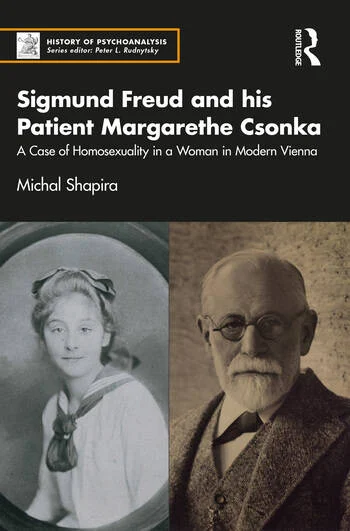Michal Shapira’s book Sigmund Freud and his Patient Margarethe Csonka (Routledge, 2023) received the 2024 Radomír Luža Prize, awarded by the Assosiation American Friendfs of the Documentation Centzer of Austrian Resistance and the German Studies Association.
Shapira examines one of Sigmund Freud’s least-studied cases, published in 1920 as “The Psychogenesis of a Case of Homosexuality in a Woman” and situates his study within the context of the history of psychoanalysis, science, and medicine as well as of gender, sexuality, and feminism in modern urban Central Europe. Freud’s unfinished four-month-long case study of seventeen year old Margarethe Csonka from an upper middle class Viennese family and her homosexual attraction to the ten years older Baroness Leonie von Puttkamer takes place during the emergence of the New Woman and progressive ideas about female sexuality while urban modernism remained connected to opposing ideals of womanhood. Freud did not treat “the girl” of his case study in a pejorative manner, nor did he diagnose the young woman’s homosexuality as neurotic and try to cure her. In fact, Shapira reasons compellingly, that societal changes for women as well as Viennese Jews influenced Freud’s mindset who had, when he began to analyze homosexuality at the turn of the century, followed a phallocentric attitude. Nevertheless, Shapira argues, while scholars of sexuality frequently focused on Freud’s writings on male homosexuality, disregarding his views on homosexual women, Freud was not as revolutionary as he claimed to be. By placing Freud’s ideas and analyzing and scrutinizing them closely in the context of the medical discourse, modernist social changes, and the prevailing antisemitism during the interwar years, Shapira reveals the uniqueness of Freud’s voice and demonstrates convincingly how he was more radical for his time than later feminists remember him. This book serves as a corrective, renewing and reinvigorating interest in Freud and demonstrates that his views on sexuality are as relevant today as ever.
Margarete Lamb-Faffelberger
Lafayette College

